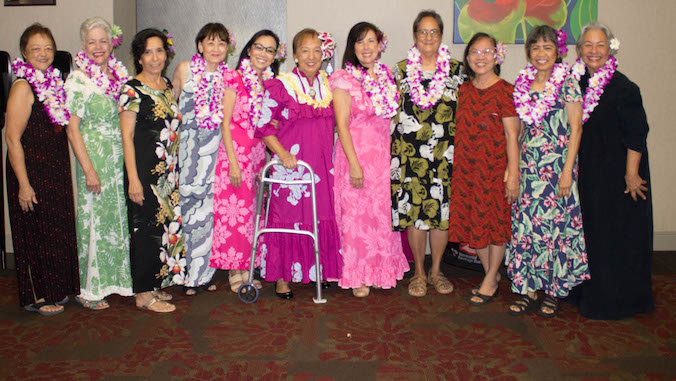
In the U.S., Blacks, Hispanics, American Indians/Alaska Natives, Asians and Native Hawaiian or other Pacific Islanders bear a disproportionate burden of disease, injury, premature death and disability. Cancer is just one example of the many health disparities that these groups face. The University of Hawaiʻi Cancer Center’s work with these populations has significantly improved ongoing efforts to reduce health disparities among these populations across Hawaiʻi and the Pacific in research that could impact other parts of the world.
Addressing disparities in minority communities
April is National Minority Cancer Awareness Month, a time to raise awareness about cancer health disparities among racial and ethnic minority populations. Cancer health disparities exist among minority populations for many reasons, one of which is lack of access to clinical trials in the community setting where they seek cancer care. To address the nation’s cancer disparities, the National Cancer Institute (NCI) established the NCI Community Oncology Research Program (NCORP), a national network that supports researchers in bringing cancer clinical trials and care delivery studies to people in their own communities.
Out of the 46 sites that receive grants from NCORP, UH Cancer Center is one of only 14 that are designated as a minority/underserved community site. This designation is given to cancer centers whose patient populations are made up of at least 30% racial/ethnic minorities or rural residents. The NCORP at the UH Cancer Center helps increase participation of Hawaiʻi’s minority, rural and underserved patients in clinical trials, providing them with the highest quality cancer care while ensuring new treatments are effective across a broad range of ethnicities.
“The Minority Underserved NCORP allows us to provide the state of Hawaiʻi with novel and cutting-edge cancer treatment,” said NCORP contact principal investigator and UH Cancer Center Professor Jeffrey Berenberg. “Minority participation in clinical trials is so important because it helps us to better understand how we can develop cancer treatments that are actually tailored to each individual.”
Increasing minority participation in trials
Across the nation, about 83% of clinical trial participants are Caucasian, while racial and ethnic minorities are often underrepresented in these types of studies. This is a concern as people of different ages, races and ethnicities may react differently to the various types of cancer treatments. Due to Hawaiʻi’s racially and ethnically diverse population, the UH Cancer Center and its affiliate members throughout the state have been able to enroll 16,623 patients onto clinical trials since 2016, of which approximately 73% belong to racial and ethnic minority groups.
Similar to racial and ethnic minority populations, cancer patients in rural areas—including Oʻahu’s neighbor islands—experience worse outcomes in survivorship than their counterparts. These individuals are often diagnosed later than those residing in urban areas, and many need to travel long distances to receive the standard of care.
To ensure these patients have access to the latest treatments, the UH Cancer Center has developed the Tickets for the Cure Program. The program provides funding for cancer patients and their support companions to fly back and forth to Honolulu while participating in clinical trials. Not only are they receiving the highest quality of care, but they are also making important contributions to medical research. The Tickets for the Cure Program, generously funded by the Friends of the UH Cancer Center, is just one of many steps that the center is taking to work towards achieving health equity for all.
This ongoing effort is an example of UH Mānoa’s goal of Excellence in Research: Advancing the Research and Creative Work Enterprise (PDF), one of four goals identified in the 2015–25 Strategic Plan (PDF), updated in December 2020.
UH Cancer Center is celebrating its 50th anniversary this year. The center has made seminal discoveries in the areas of cancer biology, epidemiology, cancer prevention and treatment, and contributed to the advanced health care for thousands of cancer patients to gain access to the most innovative and latest clinical trials at home in Hawaiʻi.

